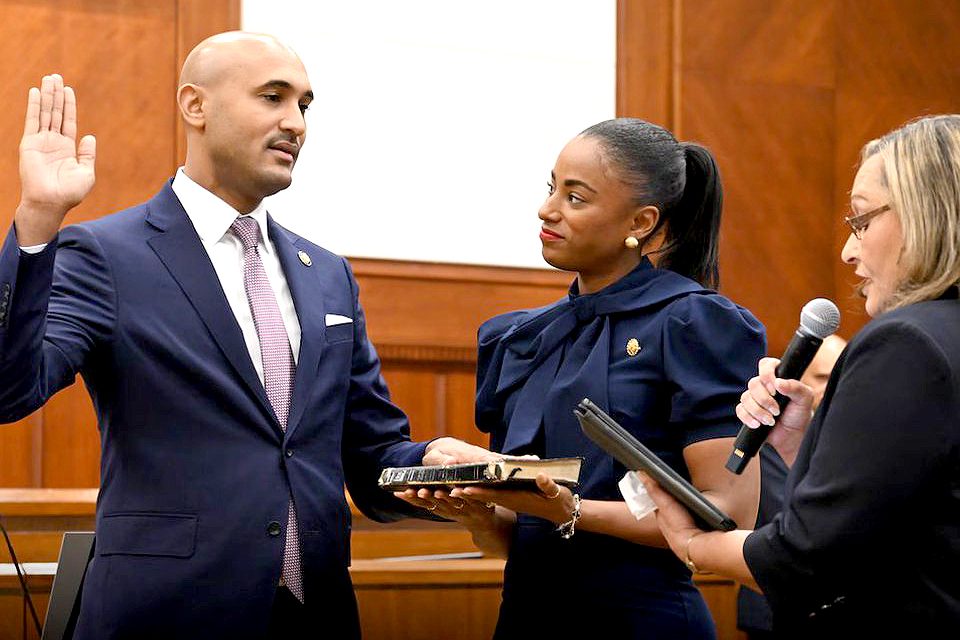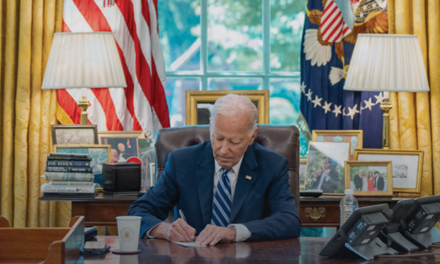SPEAKIN’ OUT NEWS
(photo credit: John Sharp)
BIRMINGHAM, Ala. — The future of Alabama’s congressional districts—and the newly won seat of Rep. Shomari Figures, a Black Democrat—returns to federal court today, where a panel of judges will decide whether to make a court-ordered redistricting plan permanent.
Figures, who took office just last month, was elected in November 2024 after the U.S. Supreme Court ruled that Alabama’s previous congressional map diluted Black voting power in violation of the Voting Rights Act of 1965. That ruling forced the Republican-controlled Legislature to redraw the state’s districts, leading to the creation of a second Black-majority district and Figures’ subsequent victory over Republican Caroline Dobson.
However, the court’s order to implement the new map was only a temporary injunction for the 2024 election. Now, federal judges in Birmingham will determine whether to uphold the map for future elections or allow the state to make changes.
Legal Battle Over Representation
“This is a clear-cut case, and it should be an easy decision for the court,” said Marina Jenkins, executive director of the National Redistricting Foundation, which is representing plaintiffs in the case alongside the NAACP Legal Defense Fund. Jenkins, who also leads the National Democratic Redistricting Committee—an organization chaired by former U.S. Attorney General Eric Holder—argued that the case is about more than just redrawing district lines.
“It’s about representation and living up to the fundamental ideal that should guide our democracy—that every individual has the right to exercise self-determination at the ballot box,” she said during a pre-trial press briefing.
The Republican-led Alabama Legislature has maintained that its initial redistricting plan was fair and based on traditional districting principles rather than racial discrimination. In court filings, attorneys for the state and Secretary of State Wes Allen argued that Alabama’s political processes are open to all voters and that racial voting patterns are the result of political preferences rather than racial exclusion.
“Defendants will demonstrate with expert and lay testimony that the political processes in Alabama are open to all, and that what appears to be bloc voting on account of race is instead the result of political or personal affiliation of different racial groups with different candidates,” the state’s latest filing states.
A Pivotal Decision for Alabama’s Political Landscape
Before the 2024 ruling, Alabama—despite having a 27% Black population—had only one Black representative in Congress, Rep. Terri Sewell (D-Birmingham). The Supreme Court’s decision in Allen v. Milligan rejected Alabama’s 2021 congressional map for diluting Black voting power and dismissed a subsequent attempt by state lawmakers to maintain only one majority-Black district. Ultimately, a federal court approved the current map, which Figures used to win his seat.
The trial, expected to last up to three weeks, will determine whether Alabama’s newly drawn districts remain in place for future elections or if the state will be forced to redraw its congressional boundaries once again.









